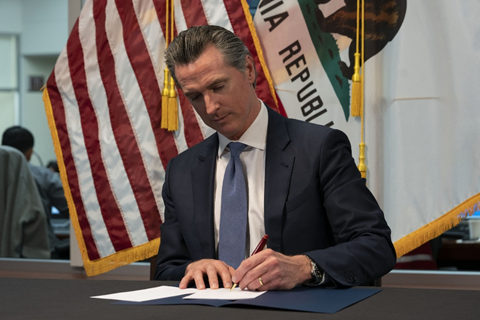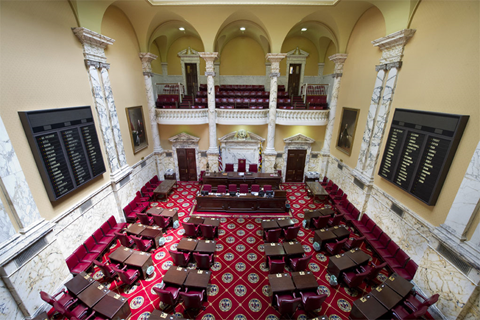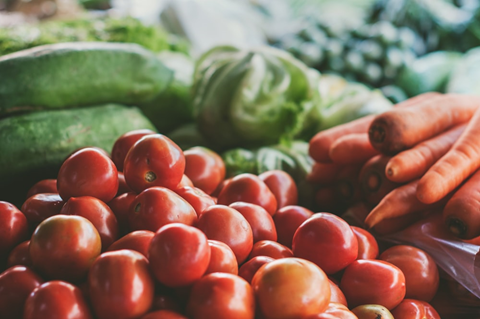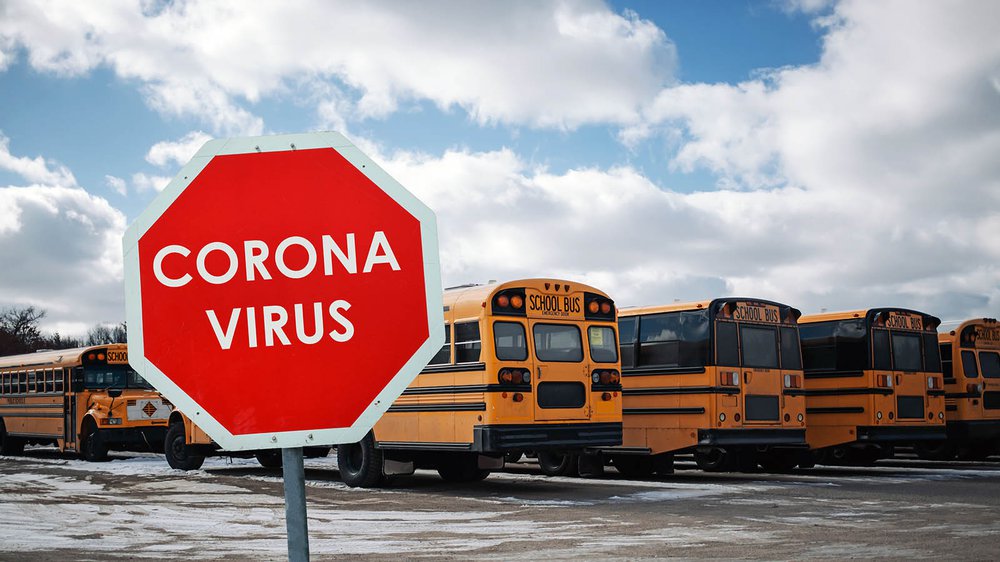Expect California schools to remain closed until summer, governor says – By John Fensterwald, EdSource
California also to seek federal waiver from state standardized testing this year
Gov. Gavin Newsom said Tuesday that most school districts should expect to remain closed for the rest of the school year and not reopen in a few weeks, as many parents are anticipating, because of escalating coronavirus infections.
“I need to be honest and transparent with you,” he said to parents and educators, citing the “changing nature of the dynamic” of the pandemic and the need to continue social distancing by having students remain at home.
“Don’t anticipate schools are going to open in a week. Please don’t anticipate in a few weeks,” he said.
During his press conference, he also suggested that school sites may be repurposed to provide childcare during the closures for low-income children and parents with no other alternatives. He said there would be more details in coming days.

Governor Gavin Newsome, gov.ca.gov
Maryland Senate passes sweeping schools reform bill with amendments that would halt plan in bad economy – By Luke Broadwater, Baltimore Sun
After hours of debate, Maryland’s Senate late Monday night passed an ambitious, expensive overhaul of the state’s public schools, but only after amending the bill to halt the plan in the event of an economic downturn or if it isn’t achieving academic progress.
Nearing midnight, the Senate voted 37-9 to approve the recommendations of the so-called Kirwan Commission, which proposed the $4 billion-per-year overhaul of Maryland’s public schools ― boosting teacher pay, expanding vocational training, and funding additional services for children in the poorest communities. Six Republicans, including the Senate GOP’s leader and top budget expert, joined their Democratic colleagues in voting for the amended bill.
The legislature is rushing to pass the educational overhaul ahead of the early closure of the 441st General Assembly session, which will end abruptly Wednesday due to the coronavirus pandemic.

Maryland State Senate Chamber, msa.maryland.gov
Veterans’ advocates urge Congress to protect GI Bill benefits as colleges move classes online – By Danielle Douglas – Gabriel, The Washington Post
Colleges and universities are scrambling to ensure students can complete their courses as the coronavirus pandemic forces schools to abandon face-to-face instruction. But moving all classes online could run afoul of Department of Veterans Affairs regulations and have a devastating impact on those who rely on GI Bill education benefits.
VA places a premium on face-to-face training. Veterans taking classes on campus receive higher monthly payments than those taking courses online. Online students typically receive only half the housing allowance of their peers.
Academic programs must be approved by VA for online instruction. If a program that already had that stamp of approval converts to online-only classes, GI Bill payments will remain the same for the rest of the semester. Payments for the next term, however, would be reduced if the program remains virtual.
The situation could become especially dire for veterans in academic programs that never received approval for online instruction. In those cases, veterans would lose all of their education benefits once classes begin online.
The Senate passed legislation this week granting VA the authority to ease the restrictions, but companion bills in the House are stalled. If Congress fails to take action soon, the federal agency will move ahead with reducing aid to student veterans.

USDA and partners plan to offer food delivery for rural students – By Agweek wire reports, Agweek
While school is out in the majority of states across the country due to COVID-19 prevention efforts, the U.S. Department of Agriculture and state education authorities are working to ensure students who rely on free and reduced-price food can still access it.
The USDA already waived requirements for all 50 states and the District of Columbia and Puerto Rico that food be served in “congregated” settings, allowing for brown bag-type lunches for students who need it.
But showing up at a school to pick up lunch isn’t possible for all students, and students in need in rural areas could be particularly vulnerable. So the USDA on March 17 announced it will work with nonprofit and industry organizations to provide meals to students in some rural schools in areas with active coronavirus outbreaks beginning next week.
“Right now, USDA and local providers are utilizing a range of innovative feeding programs to ensure children are practicing social distancing but are still receiving healthy and nutritious food,” Agriculture Secretary Sonny Perdue said in a statement.












